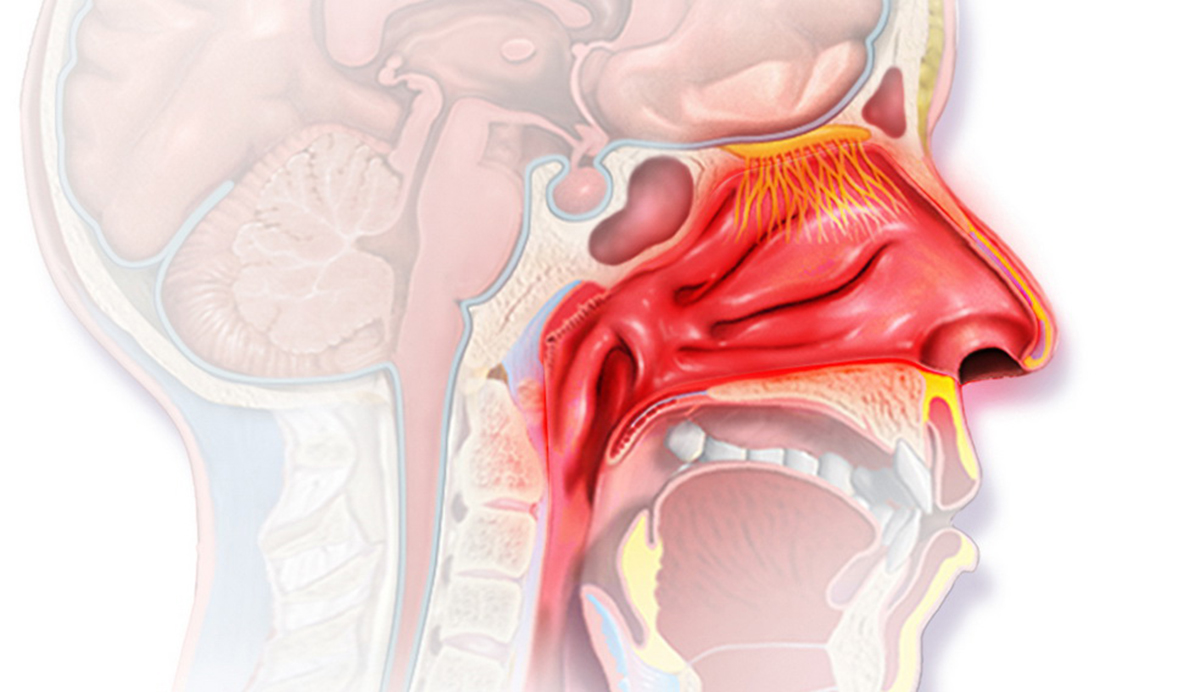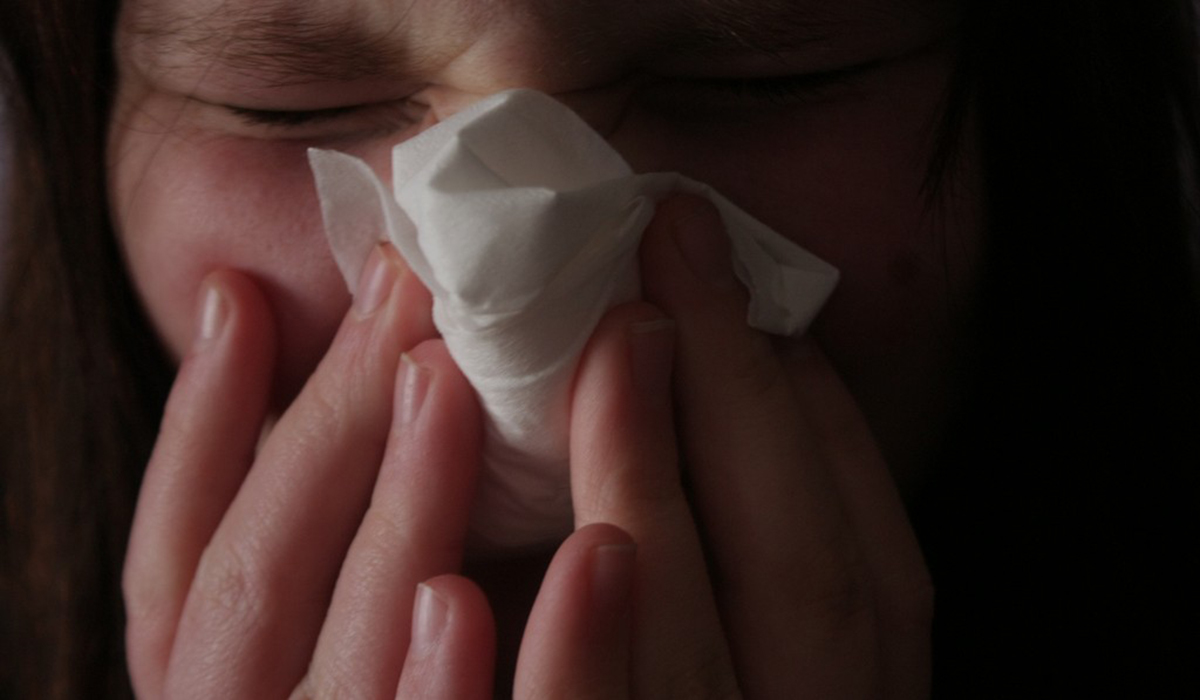What is Allergic Rhinitis?
Allergic rhinitis is often referred to as allergies or hay fever. The condition occurs when the immune system overreacts to particles in the air being breathed into the nasal passages and lungs.

The particles responsible for allergic rhinitis are called allergens, which mean they cause an allergic reaction.
What are the symptoms of allergic rhinitis?
People who have allergies will usually have symptoms for a long period of time. The most common symptoms of allergic rhinitis include the following:
- Itchy throat, eyes and ears
- Watery eyes
- Runny nose
- Repeated sneezing
- Postnasal drip
- Drainage from the eyes and nose
What are the most common allergens that cause allergic rhinitis?
When someone has allergic rhinitis, it can be caused by a variety of different allergens. Some of the most common substances that cause an allergic response include:
- Ragweed
- Mold
- Grass
- Animal dander
- Pollen
- Dust mites
- Smoke
What are the risk factors associated with allergic rhinitis?
The risk factors associated with allergic rhinitis are factors which do not directly cause the issue, but may be associated with the condition in some way. Having some risk factors for allergic rhinitis means a person’s chances of getting the condition is much higher than average, but it is not a definite certainty it will occur. Some of the risk factors associated with allergic rhinitis include; chemicals, wind, pollution, cold temperatures, humidity, hairspray, fumes and wood smoke.
How is allergic rhinitis diagnosed?
Minor allergies can be diagnosed through only a physical examination. However, a physician may recommend specialized tests to help uncover the reasons behind a person’s allergies and to decide upon the most effective treatment.
Usually, if a person is allergic to a substance, it will result in small red dots on the skin.
Another way of diagnosing an allergy is through a blood test called a RAST test. The test is done to measure the amount of immunoglobulin antibodies to particular allergens are present in a person’s blood. Allergic rhinitis can be classified as perennial or seasonal, meaning it can happen year round or only at certain times of the year.
Can allergic rhinitis cause any secondary health problems?
There have been some complications associated with allergic rhinitis and these include the following:
- Ear infections
- Recurrent sore throats
- Sinusitis
- Headaches
- Coughing
- Fatigue
- Irritability
- Alteration in sleep patterns
- Some children may experience altered facial growth and orthodontic issues
- Plugged ears
- Asthma
- Postnasal drip
- Hearing loss
- Ear pain
- Postnasal drip
- Fever
- Thick, discolored mucus and drainage
- Stuffy nose
See Also: Achooooooo: Inside The World Of Seasonal Allergies: A Dozen Tips For Sufferers
Allergic rhinitis can deeply affect someone’s quality of life, which is why it is important to seek medical treatment to alleviate or improve the symptoms.
What Is Non-allergic Rhinitis?
Non-allergic rhinitis is different than allergic rhinitis in that it really describes a group of other causes of rhinitis and not the condition itself. Many people suffer from recurring or constant nasal congestion, excessive mucus production and other nasal issues which can mimic allergic rhinitis. However, the disorder is not caused by allergies, but rather triggers which could include; weather changes, irritants such as cigarette smoke, strong odors or fumes, laundry soap, cleaning supplies or certain foods.

What types of treatment options are available for allergic rhinitis?
Allergic rhinitis is treated in a number of different ways and it can include; antihistamines, allergy shots, decongestants, eye drops and nasal sprays. Antihistamines will effectively treat allergies and can also prevent allergic rhinitis, because it blocks the histamines from forming in the body. Some over-the-counter antihistamines may be helpful, but in serious cases it may be necessary to have the medication prescribed by a physician.
The temporary use of eye drops and nasal sprays can relieve itchy eyes and other symptoms an allergy can bring. However, it is important to not use any products for a long period of time without first consulting with a physician to determine if it is safe.
Allergy shots are for those with severe allergy symptoms. Allergy shots are commonly used in conjunction with other medications to control a person’s allergy symptoms. The shots are intended to decrease the response of the body to particular allergens over time.
Can allergic rhinitis be prevented?
The best way to prevent the symptoms of an allergy is to manage them before the body has a chance to start producing an adverse response to allergens. Another effective method of preventing allergic rhinitis is to stay away from allergens which cause symptoms. Stay indoors when pollen counts are high, take regular showers to remove allergens from the hair and skin and regularly cleaning the home will remove mold, dust and pet dander and lessen allergy symptoms.
How does a person know what kind of rhinitis they have?
Through consulting with a physician, you can find out exactly what type of allergic rhinitis you have. Sometimes there may be several conditions presenting in the same person. In a single person, allergic rhinitis can be complicated by non-allergic rhinitis, a deviated septum, or nasal polyps. Any of these conditions could be much worse if a person were to catch a cold. Nasal symptoms caused by more than one condition can be very difficult to treat, often requiring the assistance of an allergist and an otolaryngologist (ENT).
Prognosis for People with Allergic Rhinitis
The outcome of treatment for allergic rhinitis will depend on many different factors. The symptoms of allergic rhinitis can be treated, but will appear each time a person is exposed to an allergen. Although perennial allergic rhinitis is not a serious or life-threatening condition, it can interfere with a person’s life.
Depending on how severe someone’s allergic rhinitis symptoms are, it can cause a person to miss work or school.
See Also: Allergies: An Overactive Immune System
Allergy shots can relieve the uncomfortable side effects of allergic rhinitis, such as hives and rashes. By consulting with an allergy specialist a person can receive a proper diagnosis, establish a treatment plan and avoid experiencing some of the most severe side effects of allergic rhinitis.
- Photo courtesy of BruceBlaus by Wikimedia Commons : en.wikipedia.org/wiki/Allergic_rhinitis#mediaviewer/File:Blausen_0015_AllergicRhinitis.png
- Photo courtesy of anna gutermuth by Flickr : www.flickr.com/photos/anniferrr/4473854085

